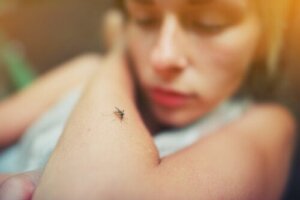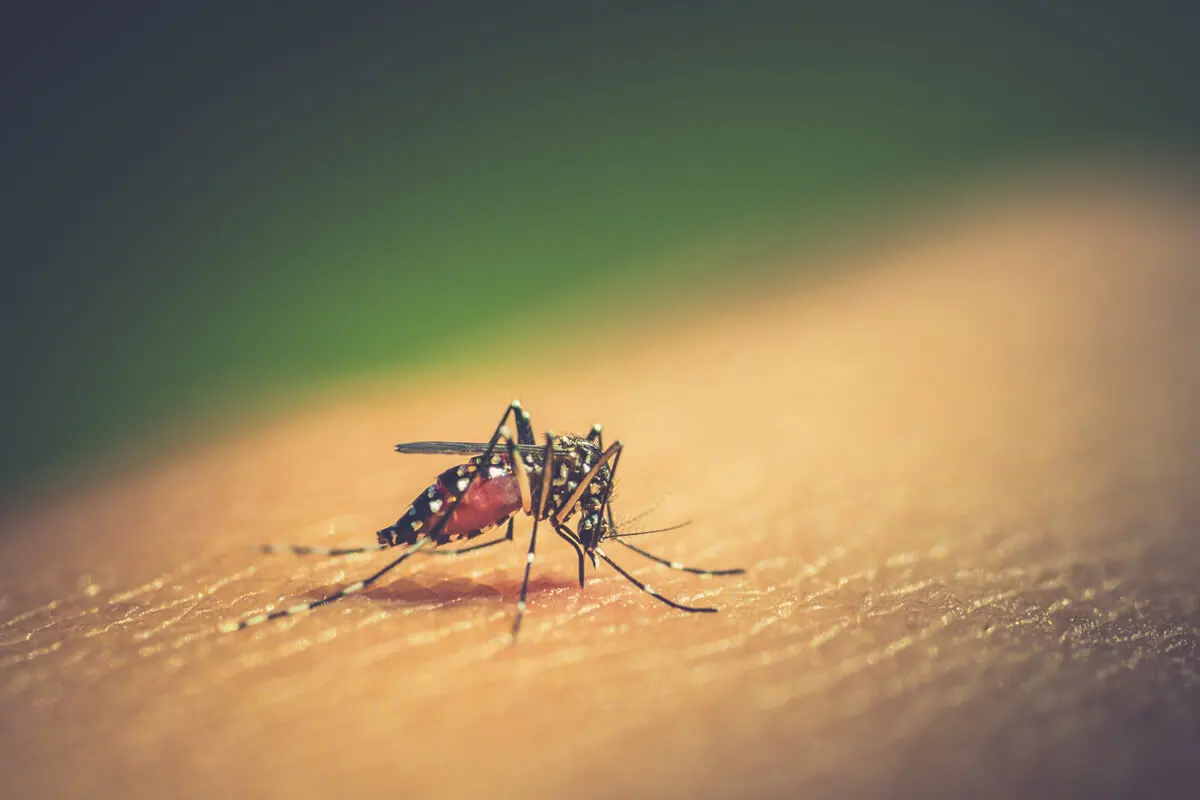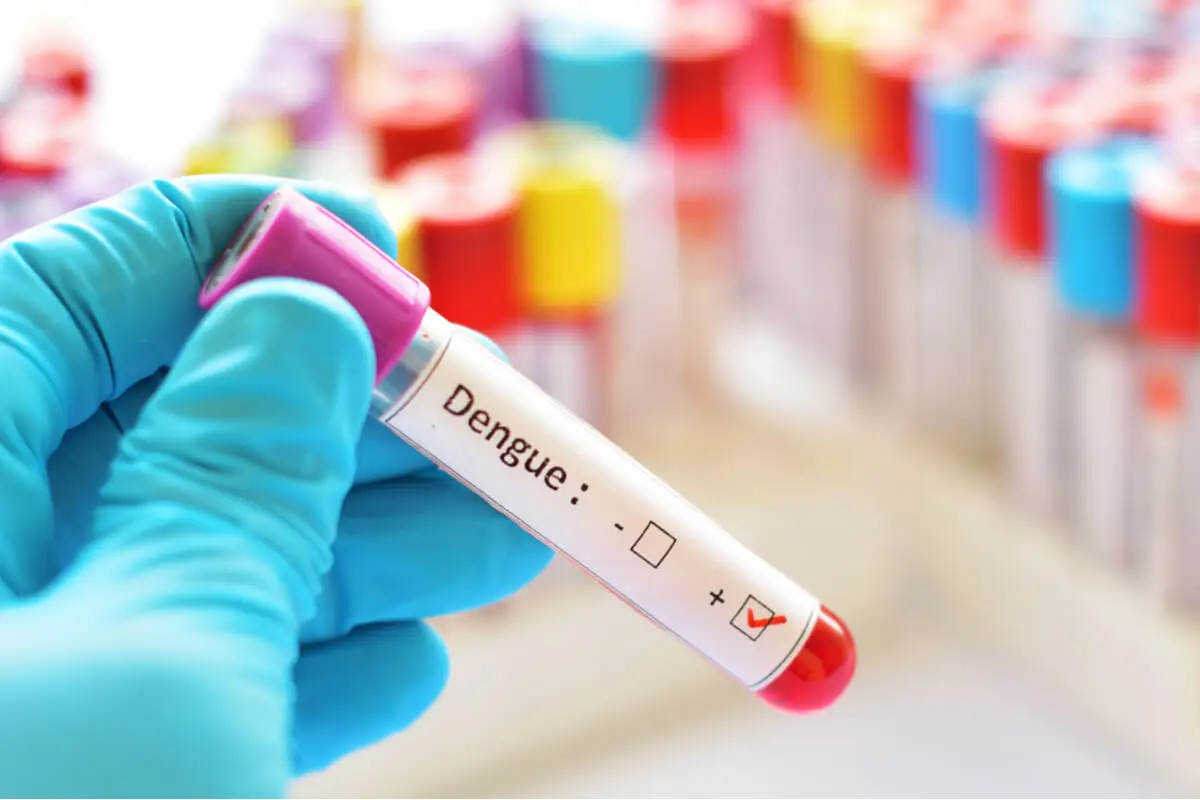Dengue Vaccine: Everything You Need to Know About It


Written and verified by the doctor Elisa Martin Cano
The dengue vaccine has been one of the greatest advances in medicine. After more than 60 years of research on how to control or reduce the impact of this disease, the first artificial immunization was achieved in 2015.
The dengue virus is one of the most widespread infections in the world. It’s estimated that around 50 million human infections occur each year. This leads to some 25,000 deaths per year, mainly in Asia, Africa, and South America.
The dengue vaccine has begun to be used in these areas, where the risk of contracting the disease is high. It’s also used in people traveling to these regions.
What is dengue virus infection?
Dengue is a disease caused by viruses belonging to the Flaviviridae family. Within this family there are four different varieties, but all are very similar to each other, especially at a structural level.
The scientific names given to these viruses are DEN-1, DEN-2, DEN-3 and DEN-4. The fundamental aspect here is that transmission occurs through mosquitoes. Mosquitoes are carriers of the virus and vectors; when they bite a person, they inoculate them with particles of the virus.
Most cases are attributable to mosquitoes belonging to the Aedes aegypti species. Another species that can also produce it is A. albopictus. As noted above, infection occurs mainly in Asia, Latin America, and Africa.
The disease is endemic and epidemic in nature. This means that it is typical of these areas and, in addition, affects many people in a given place.
These mosquitoes can transmit other diseases, such as yellow fever. This represents an increased risk and a serious public health situation for health ministries in these areas.

You may also like: 9 Facts About Mosquitoes You Should Know
What are the symptoms of the disease?
Dengue virus causes symptoms in 25% of those infected. The most common is a feeling of general malaise with fever. There may be muscle and bone pain and a severe headache behind the eye area.
In addition, gastrointestinal signs such as nausea and vomiting may occur. A skin rash or small hemorrhages, such as petechiae or hematomas, are common. There may even be bleeding gums.
The problem is that about 1 in 20 infected people develop severe dengue fever. What happens is that the person goes into shock. It’s characterized by severe bleeding, organ failure, such as liver failure, or difficulty breathing.
The risk of death in these cases is very high, so it’s essential to act quickly. In addition, severe dengue can appear in any infected person, without much distinction of age, sex, or previous conditions.
You may be interested in: 3 Natural and Homemade Mosquito Repellents
Why is the dengue vaccine important?
The dengue virus is transmitted only by mosquito bites. This is important to emphasize, as this means it is not transmitted orally, sexually, or through the respiratory tract.
When a person has been infected and manages to recover, then he/she acquires immunity to the virus. However, as we have pointed out, there are 4 different strains within the family. Therefore, this immunity is only for the specific virus that has produced the infection.
That’s why the vaccine against dengue is so important. It’s an immunization that was approved in December 2015 and would be effective against the 4 different types of virus.

What is the dengue vaccine like?
This vaccine is made from a live attenuated virus. This means that part of the virus is inoculated, but its capacity to produce the infection as such is reduced. This stimulates the immune system to become active against the particles.
The vaccine has begun to be recommended in areas endemic to the virus. It should be administered to persons between 9 and 45 years of age in a total of three doses. The second is injected at 6 months and the third at 12 months after the first.
Trials claim that the dengue vaccine is effective in people who have already been infected with the virus, which would be great news. However, there are reservations, and more time is needed to clarify its adverse effects and ability to generate a long-term response.
Therefore, even though it has been a breakthrough, its feasibility for mass use is still being studied. It’s always best to consult a physician specializing in the subject, whether we’re residents in a country where the disease circulates, or if we’re going to travel there.
All cited sources were thoroughly reviewed by our team to ensure their quality, reliability, currency, and validity. The bibliography of this article was considered reliable and of academic or scientific accuracy.
- Dengue y dengue grave. (n.d.). Retrieved July 2, 2020, from https://www.who.int/es/news-room/fact-sheets/detail/dengue-and-severe-dengue
- Dos Santos, Taissa Pereira, et al. “Dengue serotype circulation in natural populations of Aedes aegypti.” Acta tropica 176 (2017): 140-143.
- Kantor, Isabel N. “Dengue, zika, chikungunya y el desarrollo de vacunas.” Revista Medicina 78.1 (2018).
- Hombach, J. (2007). Vaccines against dengue: A review of current candidate vaccines at advanced development stages. Revista Panamericana de Salud Publica/Pan American Journal of Public Health. Pan American Health Organization. https://doi.org/10.1590/S1020-49892007000300011
- Malagon, Jeadran N., Julio C. Padilla, and Diana P. Rojas Alvarez. “Guía de Atención Clínica Integral del paciente con Dengue.” Infectio 15.4 (2012).
- Martínez Torres, E. (2008). Dengue. Estudos Avançados, 22(64), 33–52. https://doi.org/10.1590/S0103-40142008000300004
- Brady, O. J., Gething, P. W., Bhatt, S., Messina, J. P., Brownstein, J. S., Hoen, A. G., … Hay, S. I. (2012). Refining the Global Spatial
- Reyes-Cadena, Armando. “Dengue Vaccine.” Acta Pediátrica de México 41.2 (2020): 99-104.
- Limits of Dengue Virus Transmission by Evidence-Based Consensus. PLoS Neglected Tropical Diseases, 6(8). https://doi.org/10.1371/journal.pntd.0001760
- Salles, Tiago Souza, et al. “History, epidemiology and diagnostics of dengue in the American and Brazilian contexts: a review.” Parasites & vectors 11.1 (2018): 264.
- AK, Rama Krishna, S. Patil, and A. Kumar. “Dengue fever presenting with acute colitis.” Indian Journal of Gastroenterology: Official Journal of the Indian Society of Gastroenterology 25.2 (2006): 97-98.
This text is provided for informational purposes only and does not replace consultation with a professional. If in doubt, consult your specialist.








